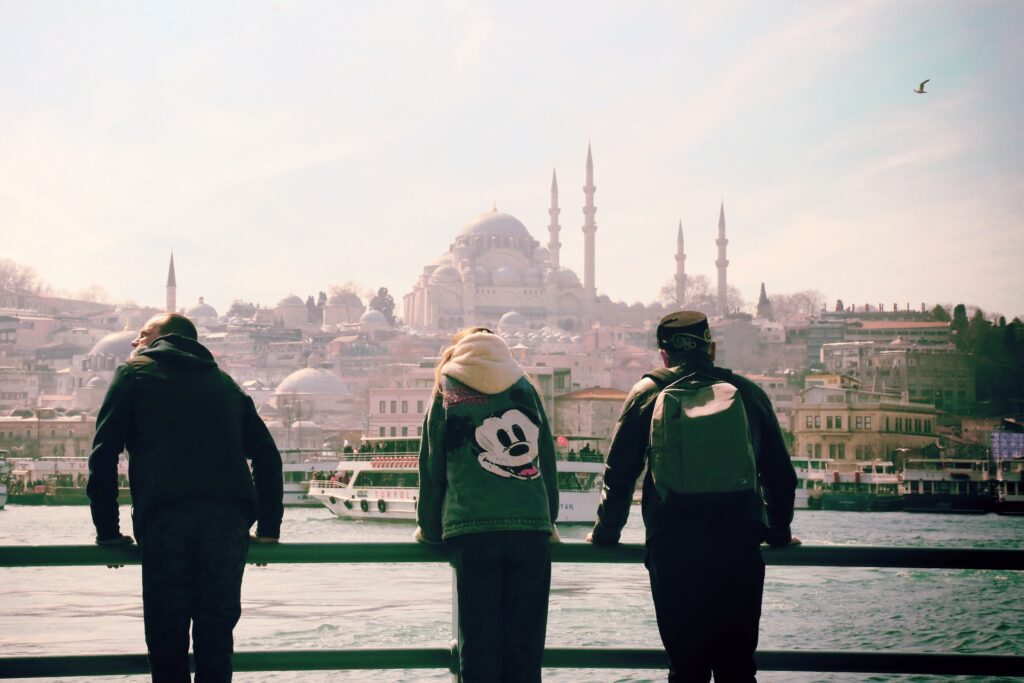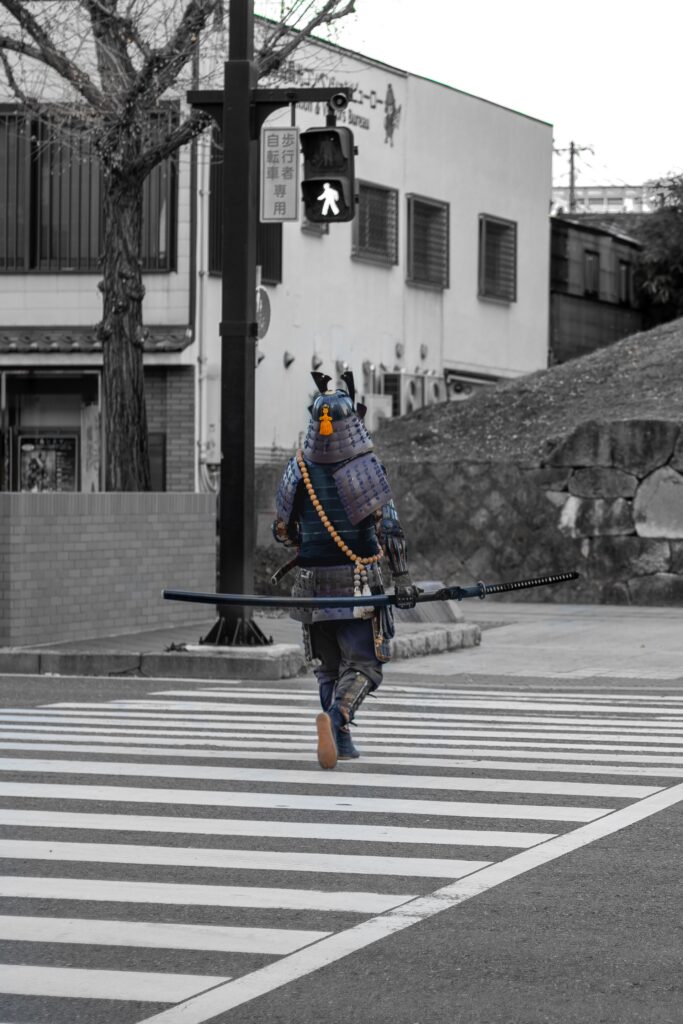Overpowered by Western society, Muslims had traditionally two reactions.
Either they withdrew in the past or they abandoned it.
Both ways ensure Muslims a persistent place in under-developed countries.
In “Civilization on Trial”, Arnold Toynbee explains the Muslim response to the Western challenge.
Some became Zealots. Others became Herodians.
The Zealots

When pressured by an external force, the Zealot will seek refuge in the familiar.
He plunges into his old ways relentlessly.
It’s an irrational and instinctive protection mechanism.
By showing an extreme attachment to the past, the Zealot hopes to have a better future.
An example of Zealotism is the ultraconservative Islamic movement known as Wahhabism.
The best outcome for a Zealot is to avoid extinction. But still, he’s at the edge of it.
Just like an ostrich, while the head is buried in the soil, the main body is defenseless.
When we are busily sophisticating the past, we don’t contribute to our future growth.
So even if the Zealot survives the present, the absence of creativity condemns his future.
The Herodians

When the Herodian is convinced that the old ways don’t work, he gets rid of them.
The Herodian discards his traditions to learn from his opponent.
While the Zealot is instinctive, the Herodian uses reason.
Mustafa Kemal Ataturk, the founding father of Turkey, was a Herodian.
He swept the Ottoman heritage to westernize his country.
It is self-evident that the Herodian has better results than the Zealot.
He faces the present challenges and works for the future.
But still, it’s not the optimal response.
The Herodian mimics the challenger. And by doing so, he stops being creative.
In the end, both the Zealots and the Herodians fail in combining the past and the present to create the best future.
Neither Zealots nor Herodians

Some Muslims distance themselves from Islam.
Somehow, Islam became for them a religion of losers. So, they turn 100% towards the West.
Others focus only on Islam. They are convinced they have nothing to learn from the dominant culture.
Muslim Zealots and Herodians are a minority. But they can be powerful and impose their worldview on the rest.
The majority of Muslims are neither Zealots nor Herodians. They are between the two.
The West succeeded in creating the conditions for a comfortable life for its people.
Its effectiveness makes it attractive.
So Muslims should learn from the West or any other civilization.
Different knowledge has been given to different people. And to learn it we need to know one another.
O humanity! Indeed, We created you from a male and a female, and made you into peoples and tribes so that you may ˹get to˺ know one another. Surely the most noble of you in the sight of Allah is the most righteous among you. Allah is truly All-Knowing, All-Aware. [Quran 49:13]
At the same time, the West created a spiritual vacuum.
The rational pursuit of prosperity turns human existence into something irrational.
The consequences of materialism are visible for everyone to see,
In the end, the destiny of Muslims is neither to be wiped out nor to be assimilated.
Their destiny is to blend beneficial knowledge from different sources and create the conditions for a decent life for all.
Japan: a case study

Japan was a student of the West at the same time that many Muslim countries. But Japan has a disadvantage.
While some Muslim countries had the West as a neighbor, Japan was a Zealot for 214 years.
The country was closed from 1639 to 1853.
This period ended when the American ships came to open the country.
When the hard reality hits them, they realized that persisting in their old ways will lead them to disaster.
Japan became a Herodian, but not entirely.
When the Meiji emperor was restored as head of Japan in 1868, the country was militarily weak, had almost no technology, and relied on agriculture.
With the death of the emperor 44 years later, Japan had a highly educated population, a solid industrial system, and became a powerful army.
Even if the emperor had no political power, he was the symbol of the Japanese culture and its continuity. He was the head of the Shinto, a Japanese native’s religion.
You can have a glimpse of the mindset of this period with these two articles of the Imperial Oath:
“Evil customs of the past shall be discontinued, and new customs shall be based on the just laws of nature.”
“Knowledge shall be sought throughout the world in order to promote the welfare of the empire.”
Overly ambitious, Japan was defeated during the Second World War.
Again, it took them a couple of years to stand on their feet.
No one knows how a humiliated Japan became an efficient commercial nation while holding to its culture.
The postwar success of the Japanese economy is impressive. It combines the specificity of the Japanese culture with the knowledge of the West.
Maybe the strength of the Japanese was in simultaneously being a student of the West while knowing what to ignore from the Western culture.
Final thoughts on Muslim’s responses

It is the ideas that move people in various directions.
In his book The Question of Ideas in the Muslim World, Malek Bennabi makes the distinction between authentic ideas and effective ideas.
An authentic idea is something true but not necessarily effective.
Likewise, an effective idea is not always authentic.
The first generations of Muslims were able to draw in Islam the power to accomplish great things.
Islam was then effective. And it reinforces the belief in its authenticity.
Today Islam is in hardship because of its inefficiency.
Japan was able to do in a short period what most Muslim countries are struggling to put in place.
The problem here is not the Western culture but our relation to it.
Some borrow the Western ideas without their roots and try to plant them on Muslim soil.
The result is similar to transplant rejection.
Others want to avoid the ‘contamination’ of the West and asphyxiate everybody with them.
In the absence of leaders that set Muslims on the right track, what can we do?
The same thing that we wish to see at a community or country level.
We can relearn how to draw in our faith the power to be effective.
We can learn everything from everyone to be beneficial for Muslims and non-Muslims.
The more ideas the Muslim minds absorb, the more unique solutions they can come up with.
We haven’t even scratched the surface of our potential.
Article posted the 21 March 2021
Previous Articles
- The Rebirth of the Middle Nation
- Serving Others Leads To One Result: Winning For Everyone
- What We Really Miss Out Living a Total Work Life
- On Developing the Love for our Best Work
- The Future of Education: Better, Shorter, Cheaper?
- Deschooling Our Minds: The 3 Lessons To Expel
- A Few Thoughts For Muslims
- The Blue Economy or How to Make Change Appealing
- Biomimicry: When Looking at the Creation Helps Solving Problems
- Scary AI and The Need For a Brain Optimization
- Can AI Be a Better Ruler?
- How the Prophet Transformed the Companions?
- Are Muslims Meant to Be Sleep Deprived?
- Muslims Judging Each Other: Why and How to Be Less Judgy
